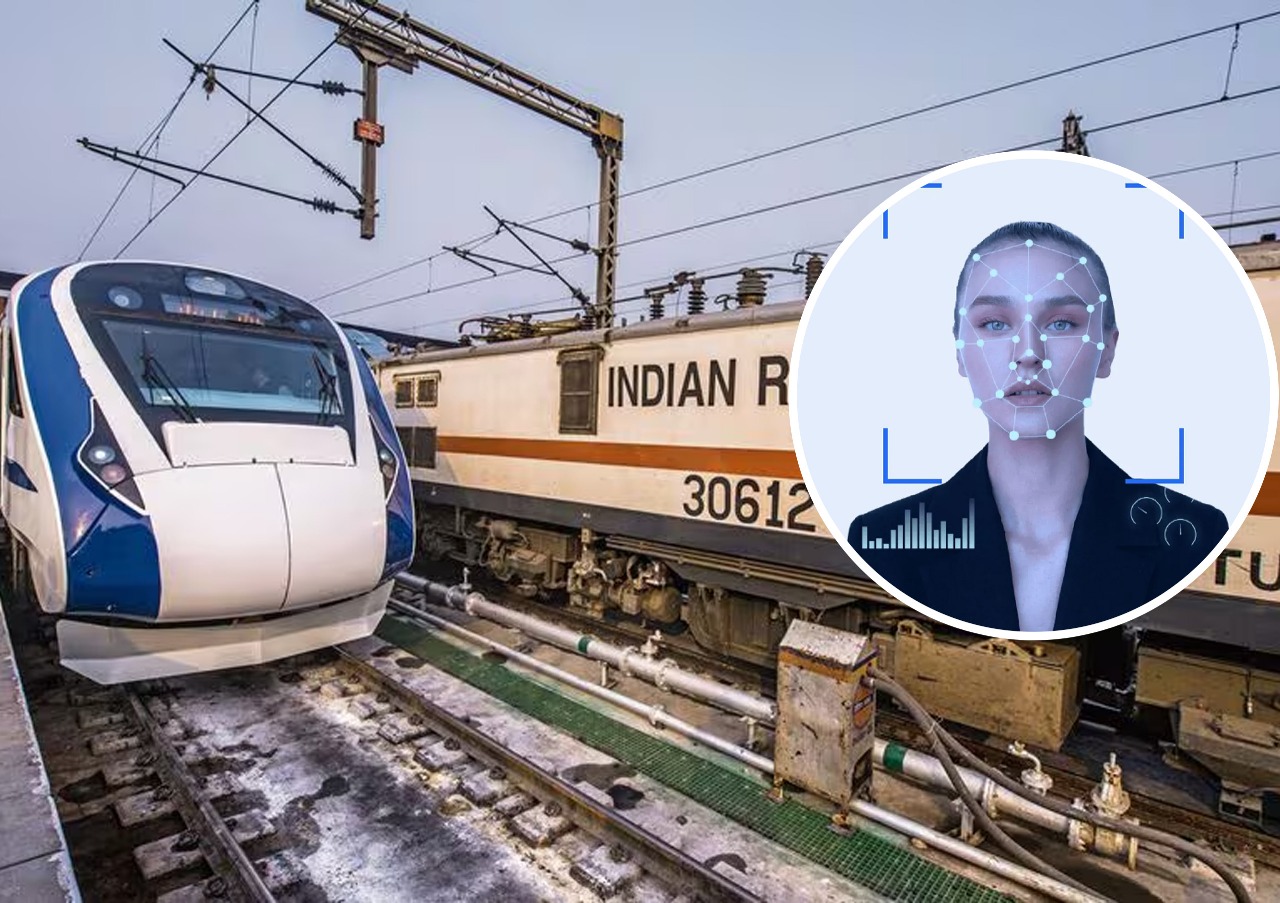
NEW DELHI:
In a sweeping move aimed at enhancing test integrity and passenger security, Indian Railways has introduced facial recognition systems and mobile jamming devices during recruitment examinations and is expanding surveillance across stations and coaches to combat cheating and crime, authorities confirmed.
On July 12, the Ministry of Railways declared that facial recognition technology (FRT) would be used to confirm the identity of candidates in all Railway Recruitment Board (RRB) exams. In order to stop the use of unfair methods, low powered jammers will also be turned on at exam locations to block Bluetooth, mobile, and other communication signals.
This step builds upon measures that began in 2019 and 2020. Earlier, FRT had been piloted at select railway stations to identify criminals by matching faces against databases such as CCTNS, while jammers were trialled to prevent electronic cheating during exams. Comprehensive surveillance measures, such as CCTV coverage, metal detector frisking, biometric attendance, and photo verification at exam locations, have also been put in place by the Railway Protection Force (RPF).
Anti cheating efforts have significantly increased with the implementation of FRT during recruitment exams. A Ministry official stated, “Using technology is necessary. Human oversight alone is insufficient in a country with over a billion people.” He added that exam centres are also equipped with CCTV, metal detectors, standardised question distribution protocols, and centralised monitoring to minimise malpractice risks.
RRB exam aspirants will now undergo live facial recognition verification at registration, verify their identity again before entry, and be monitored periodically during tests. Any mismatch triggers instant alerts to invigilators. Meanwhile, the jamming devices operate within permissible frequency limits to neutralise mobile based cheating without hampering essential connectivity for staff and security.
At the same time, Indian Railways keeps extending FRT to more stations and coaches. AI driven face recognition connected to criminal databases will be added to the 1,200 or so surveillance cameras that are currently installed in train coaches to allow for the real time identification of people of interest. Major cities like Mumbai, Delhi, Bengaluru, Kolkata, Chennai, and important intersections like Patna and Bhusawal are all part of the technology's phased rollout.
According to security agencies, pilot programs at a few stations identified a large number of potential criminals, proving FRT's ability to deter crime. However, privacy advocates caution that stringent legal safeguards must follow. Digital rights campaigners highlight the absence of a specific data protection framework for biometric systems such as FRT and emphasise potential misuse or data leaks. Civil society demands a transparent regulatory structure supported by parliamentary legislation.
Officials counter that the Indian Railways is applying FRT and jammers at limited locations and exclusively for critical functions like exam conduction and criminal identification. A senior railway source underlined, “This is not mass surveillance, it is targeted deployment to protect integrity and safety.”
Following the success of these measures in trials, the Railway Board plans to implement facial recognition and jamming systems in all RRB conducted exams by October 2025. Additionally, there are plans to equip coaches on interstate and suburban routes with FRT.
Indian Railways has to balance civil liberties and security as technology becomes more integrated. It is under increasing pressure to make sure that strong privacy policies and accountability systems go hand in hand with its modernisation of operations and crackdown on malpractice.